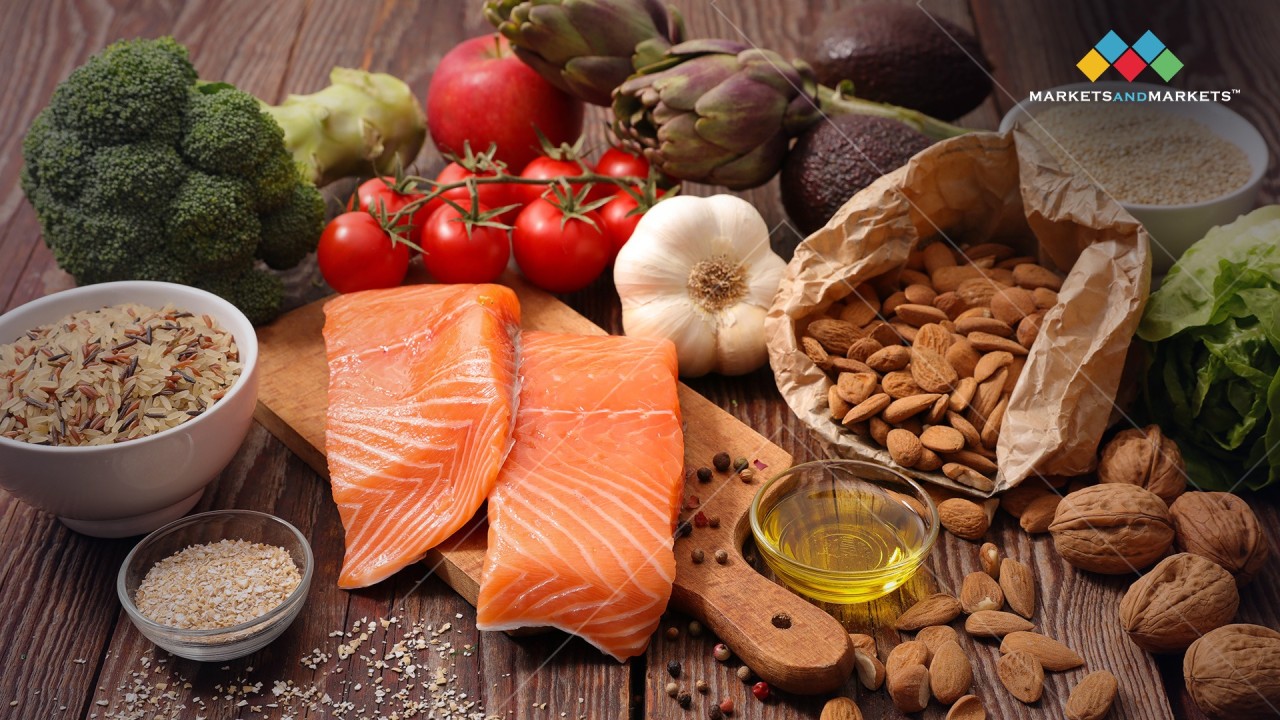The global functional food ingredients market, currently valued at USD 119.2 billion in 2024 and poised to achieve a 6.8% CAGR, reaching USD 165.8 billion by 2029, is experiencing transformative shifts and innovations. The functional food ingredients demand is fueled by consumer demand for wholesome, sustainably sourced products that offer health benefits beyond basic nutrition. Functional food ingredients play a crucial role in addressing consumers’ increasing focus on health and wellness. These ingredients offer additional health benefits beyond basic nutrition, such as improved digestion, enhanced immunity, and better heart health.

The demand for functional food ingredients is rising as health-conscious consumers seek foods that go beyond basic nutrition. These bioactive compounds—such as probiotics, prebiotics, vitamins, minerals, and proteins—enhance overall well-being and help prevent chronic diseases.
Functional Food Ingredients Market Overview
The global functional food ingredients market is witnessing rapid growth, driven by increasing health awareness, the rising prevalence of lifestyle-related diseases, and a growing interest in personalized nutrition. Market research indicates a strong CAGR for the sector, fueled by advancements in food science and biotechnology.
Functional Food Ingredients Market Drivers
- Growing Health Awareness – Consumers are actively choosing fortified foods that support immunity, gut health, and heart health.
- Aging Population – Older consumers are seeking products that promote cognitive function, joint health, and longevity.
- Sports & Fitness Trends – The rise of fitness culture has increased demand for protein-rich functional foods, amino acids, and dietary fibers.
- Technological Innovations – Advances in ingredient extraction, encapsulation, and formulation are enhancing product efficacy.
- Regulatory Support – Government initiatives promoting healthier food choices are further driving market growth.
Popular Functional Food Ingredients
- Probiotics & Prebiotics – Essential for digestive health and gut microbiome balance.
- Proteins & Amino Acids – Key components in sports nutrition and weight management.
- Omega-3 Fatty Acids – Recognized for their cardiovascular and cognitive benefits.
- Vitamins & Minerals – Fundamental for immunity and overall well-being.
- Botanical Extracts – Plant-based ingredients offering antioxidant and anti-inflammatory properties.
Functional Food Ingredients Market Trends
The Functional Food Ingredients Market has been experiencing significant growth, driven by rising consumer demand for healthier food options and the increasing focus on wellness. Key trends shaping the market include:
- Increased Focus on Health Benefits: Consumers are becoming more aware of the nutritional benefits of food ingredients, leading to a shift towards ingredients that support immunity, digestive health, weight management, and overall wellness.
- Plant-Based Ingredients: As plant-based diets gain popularity, there is a growing demand for plant-based functional ingredients like protein isolates, fibers, and antioxidants. These ingredients appeal to both vegan and health-conscious consumers.
- Fortification and Enrichment: Food fortification with functional ingredients, such as vitamins, minerals, and probiotics, is becoming more common as consumers seek to address nutrient deficiencies through their diet.
- Probiotics and Prebiotics: These gut-health-boosting ingredients are in high demand, particularly in dairy products, beverages, and supplements. They are linked to improved digestion, immunity, and mental health.
- Personalized Nutrition: Advances in technology are enabling personalized nutrition, where food ingredients are tailored to meet individual health needs and preferences. This is driving innovation in functional foods.
- Sustainability: Ingredients derived from sustainable sources are gaining traction, as consumers increasingly prioritize sustainability in their purchasing decisions. This includes functional ingredients like algae, seaweed, and sustainable plant proteins.
- Technological Advancements: The development of new extraction, fermentation, and encapsulation technologies is enhancing the effectiveness and bioavailability of functional ingredients, making them more appealing to consumers.
Asia Pacific region holds the largest share of the Functional Food Ingredients Market.
Shifting dietary preferences and rising health consciousness among consumers drive the demand for functional foods fortified with specific ingredients targeting various health benefits in the Asia Pacific region. This trend is particularly pronounced in countries such as China, India, and Japan, where there is a growing awareness of the importance of preventive healthcare. Additionally, the rich and diverse food culture in Asia Pacific countries, coupled with the prevalence of traditional medicine systems such as Ayurveda and Traditional Chinese Medicine, creates opportunities for the incorporation of functional ingredients derived from natural sources. Moreover, the Asia Pacific region boasts a burgeoning population, rapid urbanization, and increasing disposable incomes, all of which contribute to increased consumer spending on health-enhancing products.
Top Functional Food Ingredients Companies:
The key players in this market include Cargill, Incorporated (US), BASF SE (Germany), ADM (US), International Flavors & Fragrances Inc. (US), Arla Foods amba (Denmark), Kerry Group plc (Ireland), Ajinomoto Co., Inc. (Japan), DSM (Netherlands), Ingredion (US), Tate & Lyle (UK), and TEIJIN LIMITED (Japan).
Recent Developments of Functional Food Ingredients Industry
- In February 2024, Cargill, Incorporated (US) and ENOUGH (UK) expanded their partnership to innovate sustainable protein options using ENOUGH’s fermented mycoprotein technology. Cargill, Incorporated’s investment, and commercial agreement will boost ABUNDA mycoprotein production, known for its meat-like texture and sustainability. This partnership allows Cargill, Incorporated to tap into the growing demand for alternative protein sources, enhancing its position in the functional food ingredients market and leveraging its global footprint to scale up production efficiently.
- In September 2023, BASF SE (Germany) unveiled Product Carbon Footprints (PCFs) for selected human nutrition ingredients including Vitamin AP 1,7 TOC and Vitamin E Acetate 98%. Certified methodology reveals at least 20% lower emissions compared to the global market average. This initiative, under ISO 14067:2018, aids BASF SE in offering a competitive advantage while supporting customer emission reduction goals. By showcasing superior PCFs for functional food ingredients, this initiative not only strengthens BASF’s competitive edge but also enhances its reputation as a sustainable leader in the functional food ingredients market, fostering trust and loyalty among consumers and partners.
